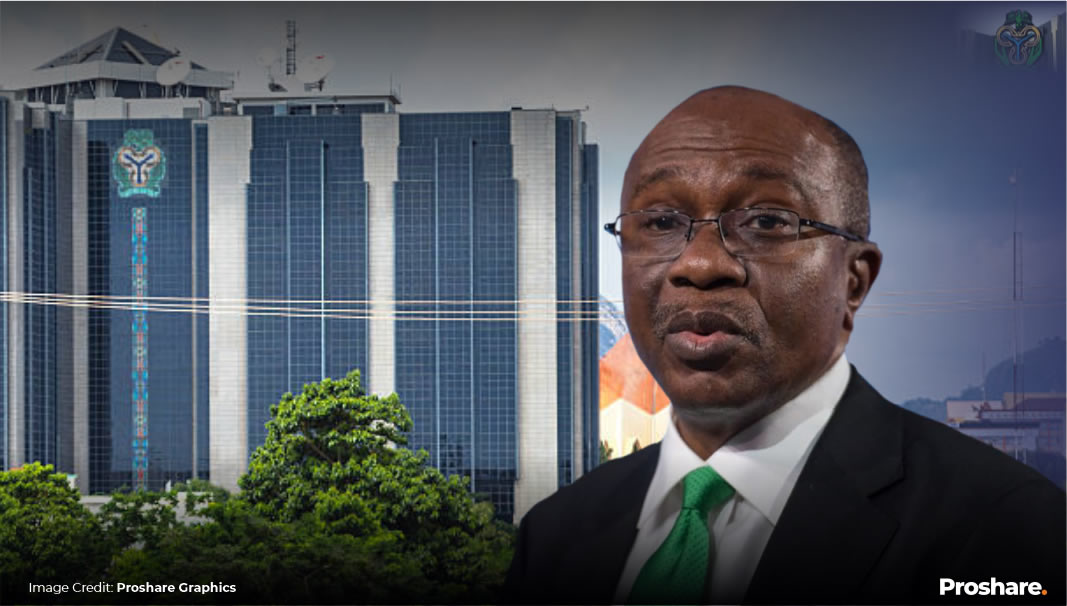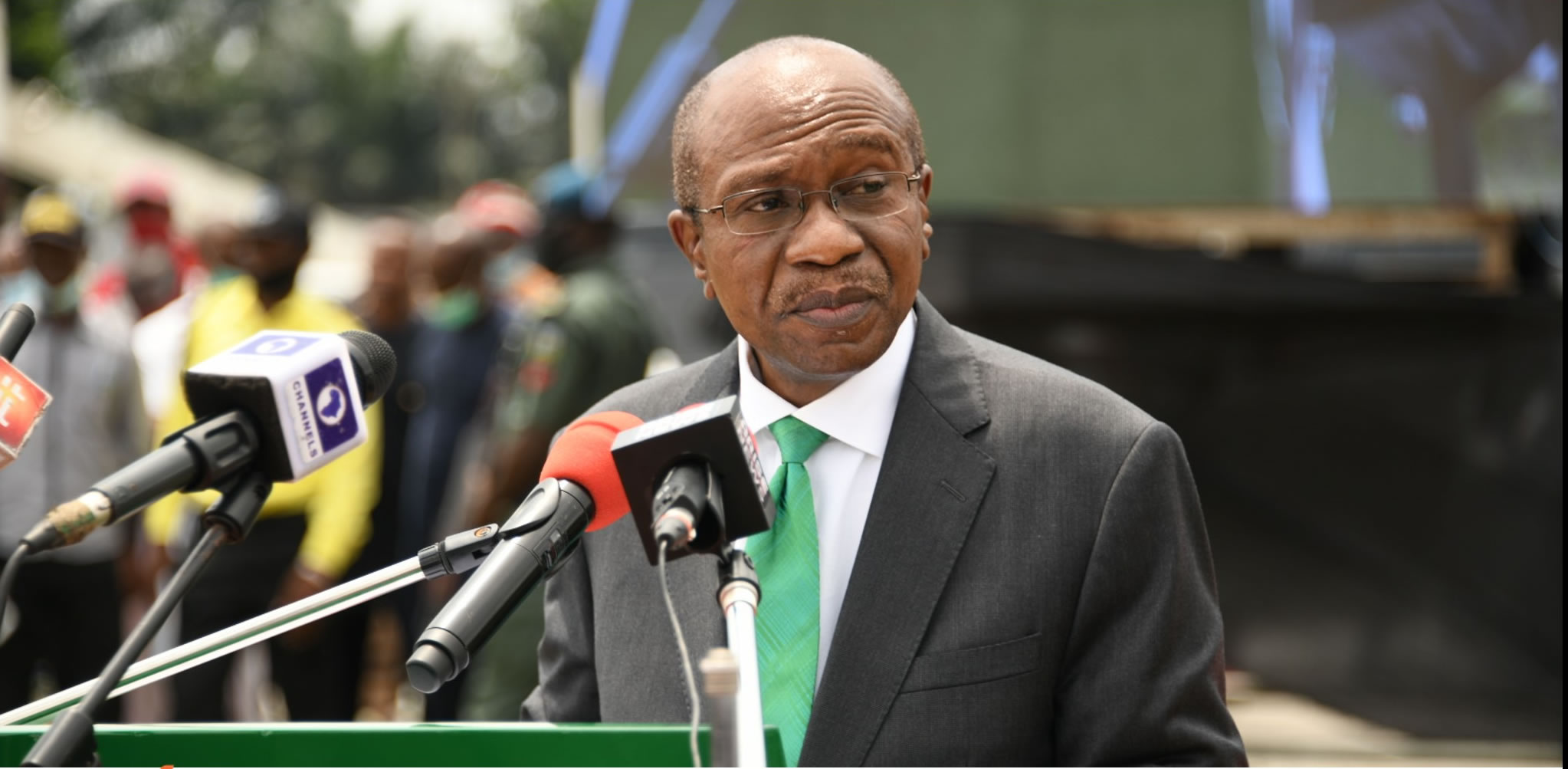Nigeria’s Central Bank (CBN) has opted to stay hawkish as it confronts domestic inflation by keeping the monetary policy rate (MPR) high. The regulator in a move that has been seen as mimicking the United States of America’s Fed adoption of a sustained tight monetary policy stance increased the previous 17.5% MPR by 50bp to 18%.
The rate rise has attracted concerns from economists who believe that the CBN could be taking care of a headache with a bullet rather than a tablet. The analysts believe that the CBN’s reference to the inflation rate being higher than the rate of the MPR was a policy misconception. They insist that as the rate at which banks borrow from the CBN, the MPR was a wrong measure to judge the real domestic rate of returns. The real rate of return on market instruments involves longer-term considerations that relate the two to ten-year treasury bill rates to the annual inflation rate and not to the short-term overnight rate at which the CBN provides commercial banks with temporary liquidity cover. The CBN Governor’s reference to real rates while speaking on the domestic monetary policy rate left a few analysts quizzical.
When the US is not Holy Grail
For example, the US Inflation rate has steadily fallen over the last six months with the fed funds rate put at a target of between 4.5% and 4.75% which is lower than the domestic inflation rate of 6% as of the end of February 2023. Given Nigeria’s MPR at 18% and the February 2023 headline inflation rate at 21.91% not much is different. Or is there? Yes, there is. The US unemployment rate as of February 2023 was 3.6% suggesting a strong labour market with GDP growth by the second half of 2022 at roughly 3%. Nigeria’s unemployment rate is unknown but as of Q4 2020, it was estimated at 33.3%. Some international projections believe that national unemployment by 2024 would be in the region of 44%. While the US has headroom to tighten monetary policy without jeopardizing growth and unemployment, Nigeria has no such luxury, and copying the Fed in its policy strategy would be the equivalent of an alley cat thinking that it is a lion as it challenges a water buffalo to a duel, the outcome is best imagined than witnessed. The cat's heavenly songs would leave an eerie experience.
The difference between the Nigerian economy and that of the US requires interrogation of the appropriate policy position that the Central Bank should take. One of the reasons the CBN has decided to tighten monetary policy is to accommodate inflation expectations resulting from the removal of petroleum subsidies sometime between April and May 2023. The rise in domestic petroleum prices would push transportation and energy costs up and inspire the CBN to push policy rates even higher. The consequence would be slower gross domestic product (GDP) growth of between 2.6% and 2.8% ( from a prospective International Monetary Fund (IMF) projection of 3.2% in 2023) and a higher domestic unemployment rate of between 44.5% and 48%.
Different Strokes for Different Folks
While the CBN at the recent 290th MPC meeting thumped its chest over the success of its currency redesign and cash withdrawal policy, a contrarian monetary policy school believes that the CBN has muddled its understanding of monetary policy and reduced money supply to cash supply. The proponents of the school argue that cash is a component of the money supply and that reducing cash does not reduce the money supply, it merely changes its composition. Besides, according to advocates of this line of reasoning recomposing money supply cannot reduce the inflation rate. They also argue that stalling the velocity of cash in circulation does not imply a cutback in the quantity of money available for settlement of commercial transactions and so cannot be said to reduce inflation. In the eyes of these analysts, the CBN’s success amounts to a ‘money illusion’.
In Praise of Expectations
Proshare analysts had expected a 50bp rate hike based on the MPC’s hawkish tone in the recent past, even though other Analysts’ opinions split between 50bp and 100bp. The considerations of the MPC centred around the sustained rate hike in the Eurozone despite the financial system crisis that arose from the liquidity challenges that beset European Bank Giant Credit Swiss. The expectation that the Fuel Subsidy would be removed by June also raised inflation expectations.
The Q4 GDP numbers (3.52% Q4 2022; 3.01% FY 2022) also seem to have encouraged the CBN to retain a hawkish posture even though Proshare’s research unit believes that more recent and leading indicators such as PMI (44.7 in Feb 2023) indicate that the economy is fragile, and growth could slow considerably under the impact of a severe cash crunch. The 50bp rate hike would immediately reflect on the lending rate of commercial banks while adjustments to the deposit rates would be affected much later leaving lenders as the beneficiaries of the rate hike. The investment portfolios of Nigerian banks which are dominated by short-term securities would gain from the higher rates. On the flip side, manufacturers and other business enterprises would be faced with a higher cost of funds and the hollowing out of bottom lines.
This has however not always been the case. Private sector productivity seemed to have defied the impact of aggressive rate hikes last year when the S&P PMI data rose within the expansion range despite the cumulative 500bp rate hike in the nine months between March 2022 and December 2022. By February, the Naira redesign and cash withdrawal limit of the CBN hurt businesses causing the PMI to tumble to 44.7 (see chart 1 below).
Chart 1:
The Cash Crunch Question
In his post-event briefing, the CBN Governor fielded a question on the situation of money supply and money in circulation relative to the cash crunch. In his response, he noted that it remains a priority for the CBN to manage the amount of money in circulation. Demonstrating the difference between the Naira redesign policy and the currency mop-up. According to the money and credit statistics of the CBN, Currency in circulation declined by N1.63trn while currency outside banks contracted by N1.78trn. This would shrink economic activities as roughly 40% of the economy is informal and 90% of the transactions in this segment are cash-based.
Much Ado about Development Finance
The CBN had before February maintained that the impact of the rate hikes was moderated by the development finance interventions which the bank considered to be an inbuilt stabilizer. Apart from the expectation that the outcomes in Q1 2023 may not favour the bank’s claims, Analysts believe that the interventions of the CBN have been opaque and may require an independent impact assessment. However, if well implemented the Intervention Facility for the National Gas Expansion Programme (IFNGEP) can be used to facilitate the adoption of compressed natural gas (CNG) as an alternative fuel for transportation to reduce the inflationary impact of a fuel subsidy removal.
Avoiding A Crisis: CRR to the Rescue?
While commenting on the developments in the US financial system which has seen three mid-sized banks with fairly relaxed regulation requirements come under severe liquidity crisis, the CBN Governor attributed the absence of a similar development in the Nigerian case to the fractional reserve requirement which is practised in Nigeria.
Fractional reserve banking is one in which only a portion of bank deposits are available for withdrawal. Under this system, banks need to keep a specific amount of cash sterilized with the Central Bank while creating loan assets from the balance of deposits held in bank vaults. On March 26, 2020, amid the covid-19 lockdown the Fed March 2020, the US stopped the reserve banking system reducing the reserve requirement from 10% to 0%. The fractional reserve banking system as practised in Nigeria has, however, generated a lot of concerns. First, Analysts believe that the CRR at 32.5% is atrociously high and a deterrent to banks whose job it is to create credit. Also, the CBN has in recent times abused the CRR instrument through which it can borrow at zero cost (as against the interest-bearing OMO bills) and advance the same at a discounted rate to ‘target industries’. In the first place, the Silicon Valley Bank (SVB) crisis was the result of asset and liability mismanagement and while a reserve requirement would have reduced the panic which eventually led to a run on the bank, it would not justify the towering CRR in Nigeria.
The 18% MPR
Analysts believe that the recent hike in the policy rate and the looming CRR would cause:
- Real GDP growth outlook to turn negative with Q1 2023 expected to come in at about 1% -2%.
- The rise in the CRR would drag lending rates up as banks gross up lending rates.
- The private sector would be crowded out of the credit market and the fiscal authorities would borrow at higher rates thereby worsening debt sustainability.
- Government borrowing cost for the MTEF 2023-2025 would have to be reviewed especially if the Means and Ways component remains unsecuritized.
- Investors would further rebalance their portfolios away from gold and equities to fixed-income securities, to take advantage of rising yields
- NPLR would rise slightly reflecting relative strain on credit performance
- PMI would further slowdown, foreshadowing a lower real GDP growth in the second half of the year.
- Despite the 50bp increase in interest rates, Capital flows would not increase substantially due to structural issues (see illustration below).
Illustration 1:
Endnote:
Analysts believe that only small progress can be made with the ham-fisted anti-inflationary policies of the Central Bank. They insist that the rising cost of funds to local enterprises would likely hammer down profit margins reduce manufacturers' PMI numbers and result in massive job layoffs, outcomes few, if any, would relish. The CBN may do well to ease off the anti-inflationary gas peddle, review its foreign exchange policy, nudge the fiscal authorities to securitize equity rather than debt and revise downwards the nondiscretionary cash reserve ratio (CRR). Hollywood Western movie star, John Wayne, sounded tough and masculine, he was a man’s man, but in the broad scheme of things success is not about toughness but about clarity, consistency, and purpose, in a foot race, a large Labrador is useless against the blinding speed of a greyhound. Equally, a rottweiler would prove infinitely superior to a poodle as a guard dog. In other words, the context of policy is just as important as the policy itself.
 Lagos, NG • GMT +1
Lagos, NG • GMT +1











 640 views
640 views






















 Sponsored Ad
Sponsored Ad
 Advertise with Us
Advertise with Us









